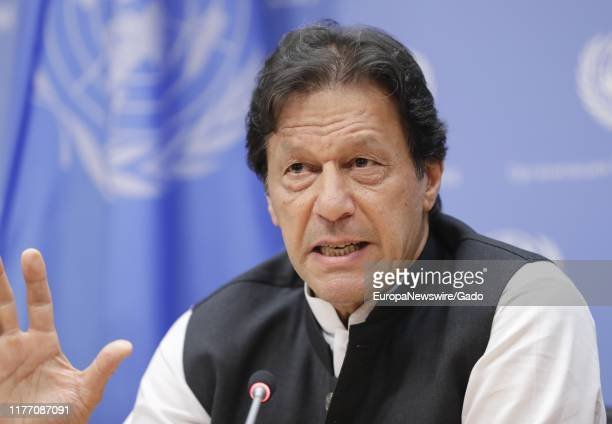In a recent development, the interim government in Pakistan’s Punjab province has made serious allegations against former prime minister Imran Khan, claiming that his Lahore residence harbors a group of 30 to 40 terrorists. The government has given Khan and his party, Pakistan Tehreek-e-Insaf (PTI), a 24-hour ultimatum to surrender the alleged terrorists or face severe action.
The interim government’s claims stem from an intelligence report suggesting that the individuals in question were involved in the recent attack on the Lahore Corps Commander House, along with other military installations. The caretaker information minister of Punjab, Amir Mir, highlighted this intelligence during a press conference, urging Khan and his party to cooperate with the authorities and hand over the suspects.
It is worth noting that earlier this year, in March, the police attempted to arrest Khan at his Zaman Park residence but faced strong resistance from PTI workers, preventing their mission. This incident added tension and uncertainty to the political climate in Punjab, raising concerns about the rule of law and the power dynamics between political parties and law enforcement agencies.
The latest ultimatum given by the interim government has further intensified the situation. The demand for the surrender of alleged terrorists places Imran Khan and his party in a difficult position, requiring them to either comply with the government’s request or face unspecified “stern action.”
As news of this ultimatum spreads, it has captured the attention of the nation, with citizens eagerly awaiting Khan’s response and the subsequent actions taken by the authorities. The allegations against the former prime minister and the potential presence of terrorists in his residence have sparked widespread debates and discussions across the country, highlighting the importance of national security and the fight against terrorism.
Imran Khan, a prominent figure in Pakistani politics and the founder of PTI, has consistently advocated for a strong stance against terrorism and extremism. Throughout his political career, he has emphasized the need to eradicate terrorism from the country, making it crucial for him to address these allegations promptly and transparently.
Given the gravity of the situation, it is expected that Khan and his party will vehemently deny the allegations, asserting that his residence does not harbor any terrorists. PTI representatives may argue that such accusations are politically motivated, aiming to tarnish Khan’s reputation and undermine his party’s credibility. Additionally, they may call for a fair and impartial investigation into the matter to establish the truth.
Conversely, the interim government, responsible for maintaining law and order during the transition period, must ensure that the security of the province is not compromised. Their demand to hand over the alleged terrorists underscores their commitment to upholding the rule of law and safeguarding the lives of citizens. However, they must also provide substantial evidence to support their claims and demonstrate the veracity of the intelligence report.
As the nation awaits the outcome of this unfolding situation, it is vital for all stakeholders to act responsibly and in the best interest of the country. The government must maintain transparency throughout the process, addressing any doubts or concerns raised by the public. Similarly, Imran Khan and his party should cooperate fully with the authorities, facilitating a comprehensive investigation to clear any suspicions surrounding his residence.
The resolution of this issue will not only affect Imran Khan and his political career but will also have broader implications for national security and the fight against terrorism in Pakistan. It is a critical moment that demands cautious and judicious actions from all parties involved to ensure justice and maintain stability in the country.




